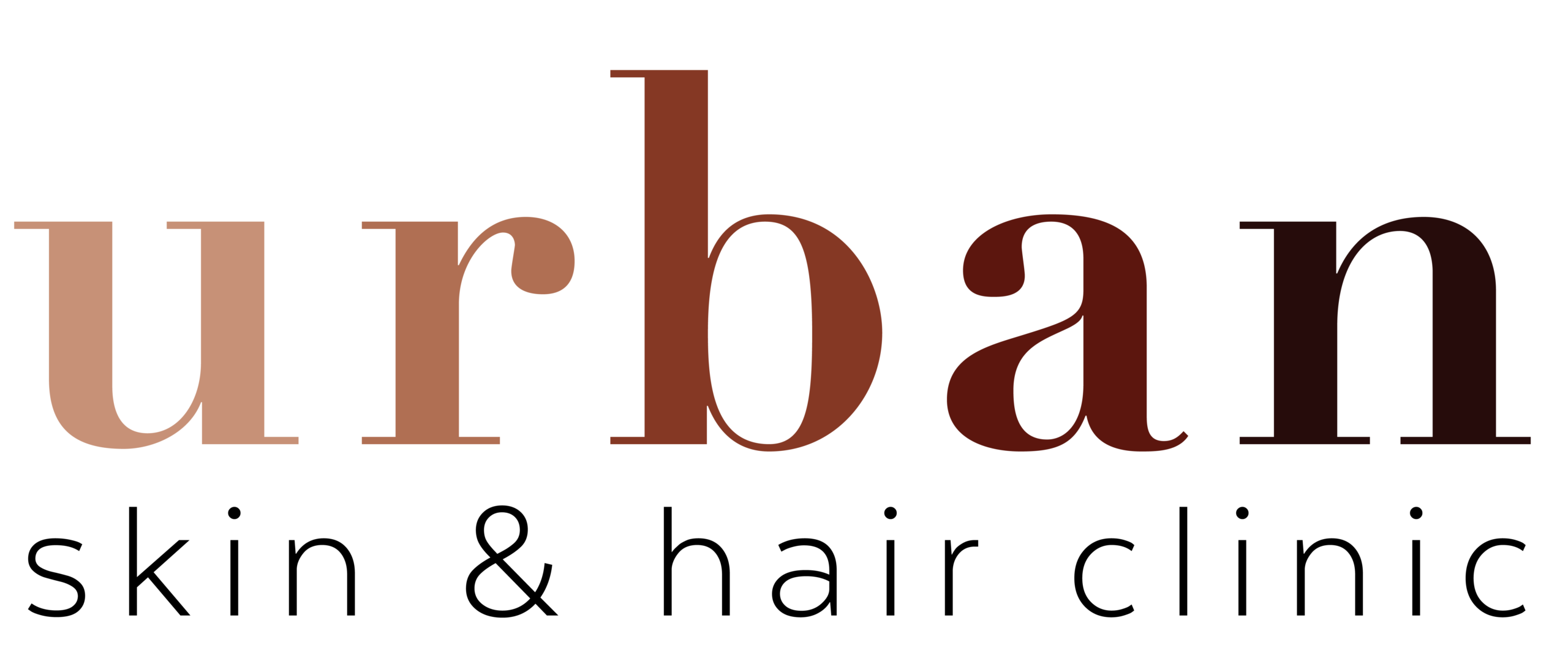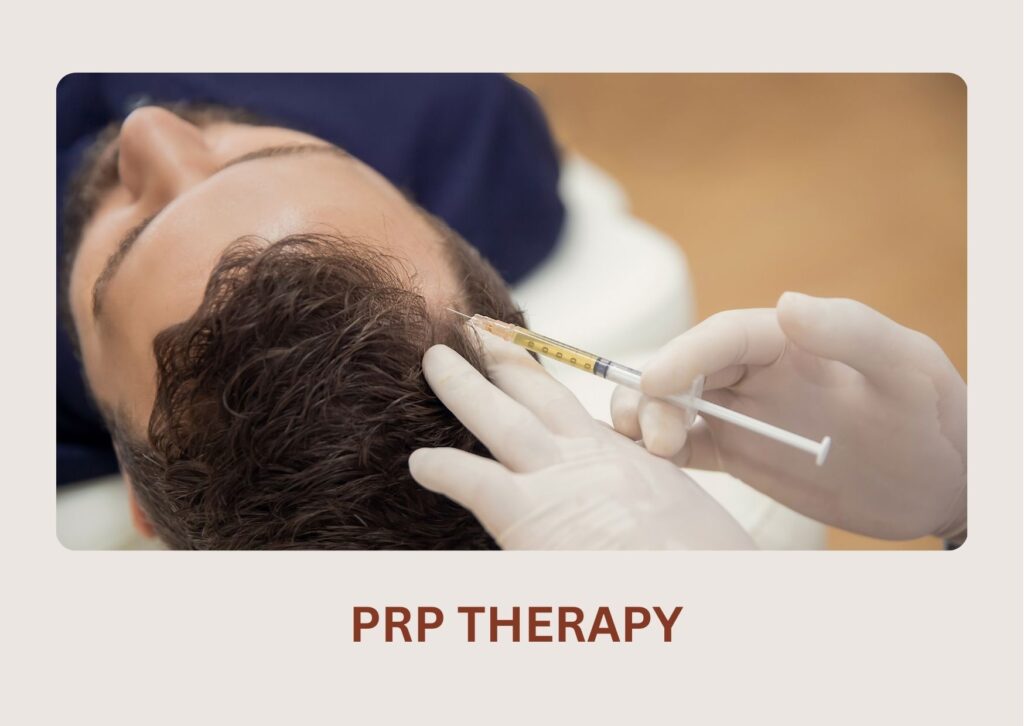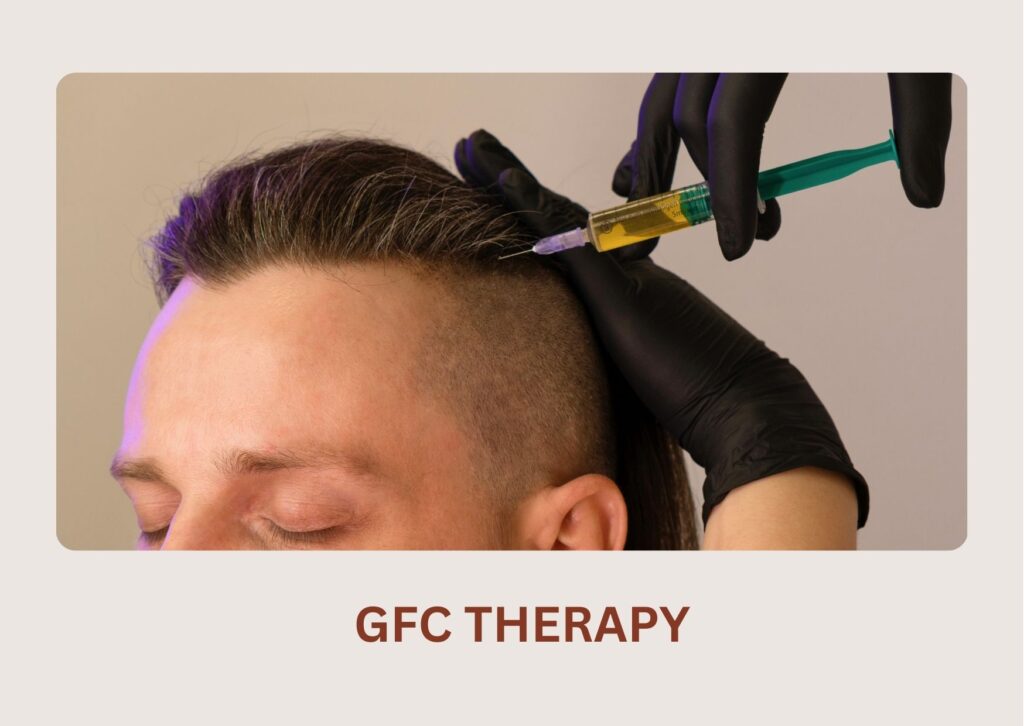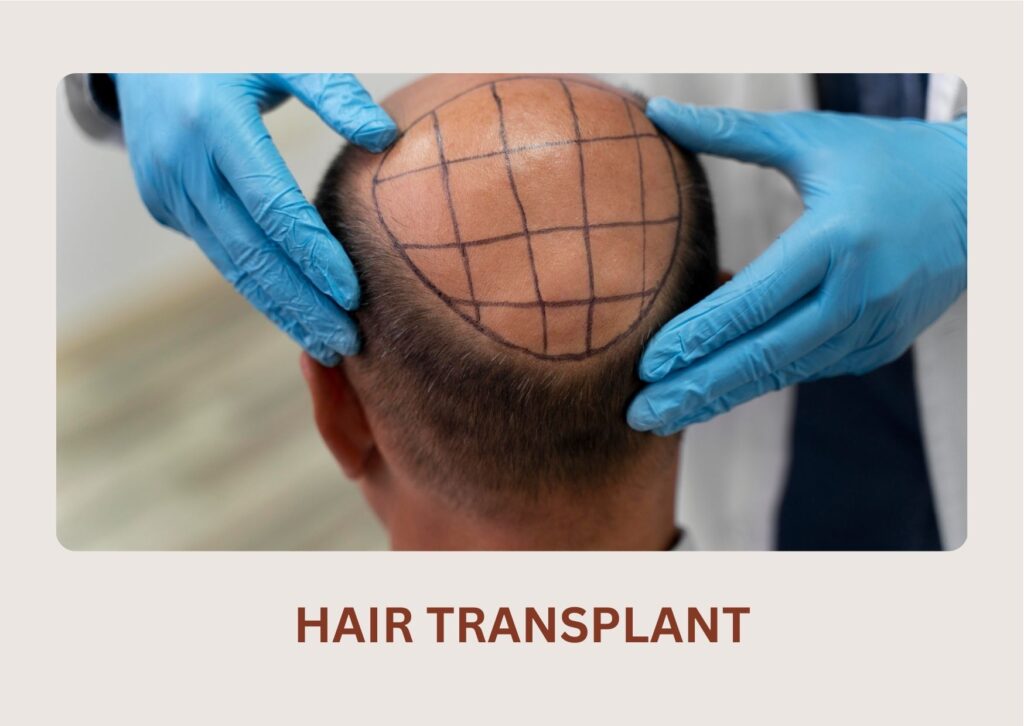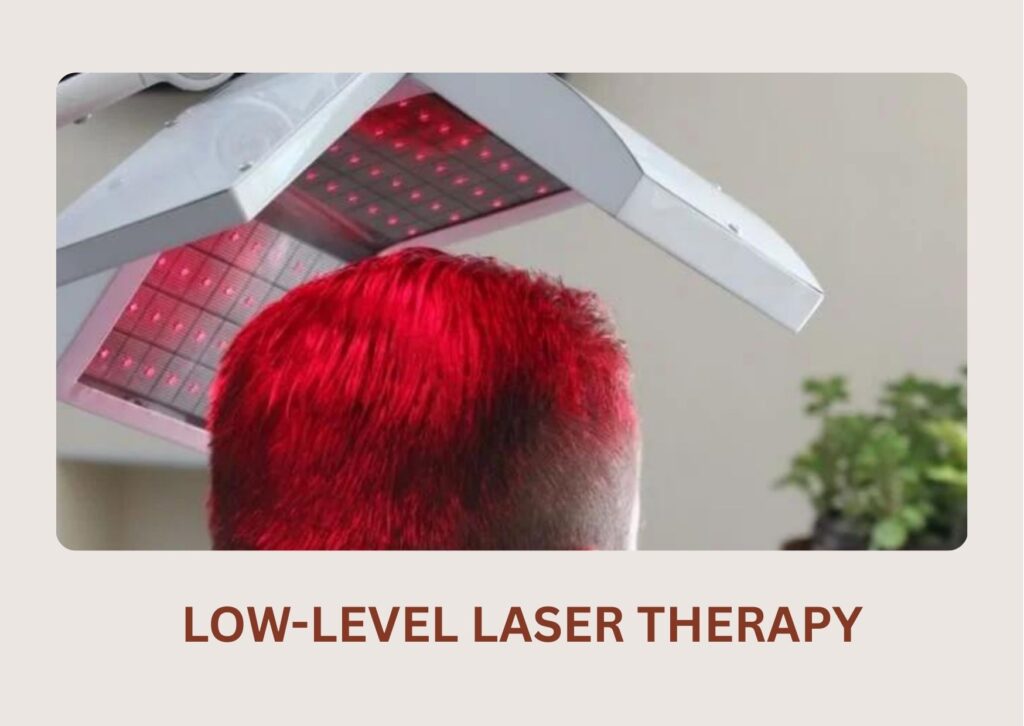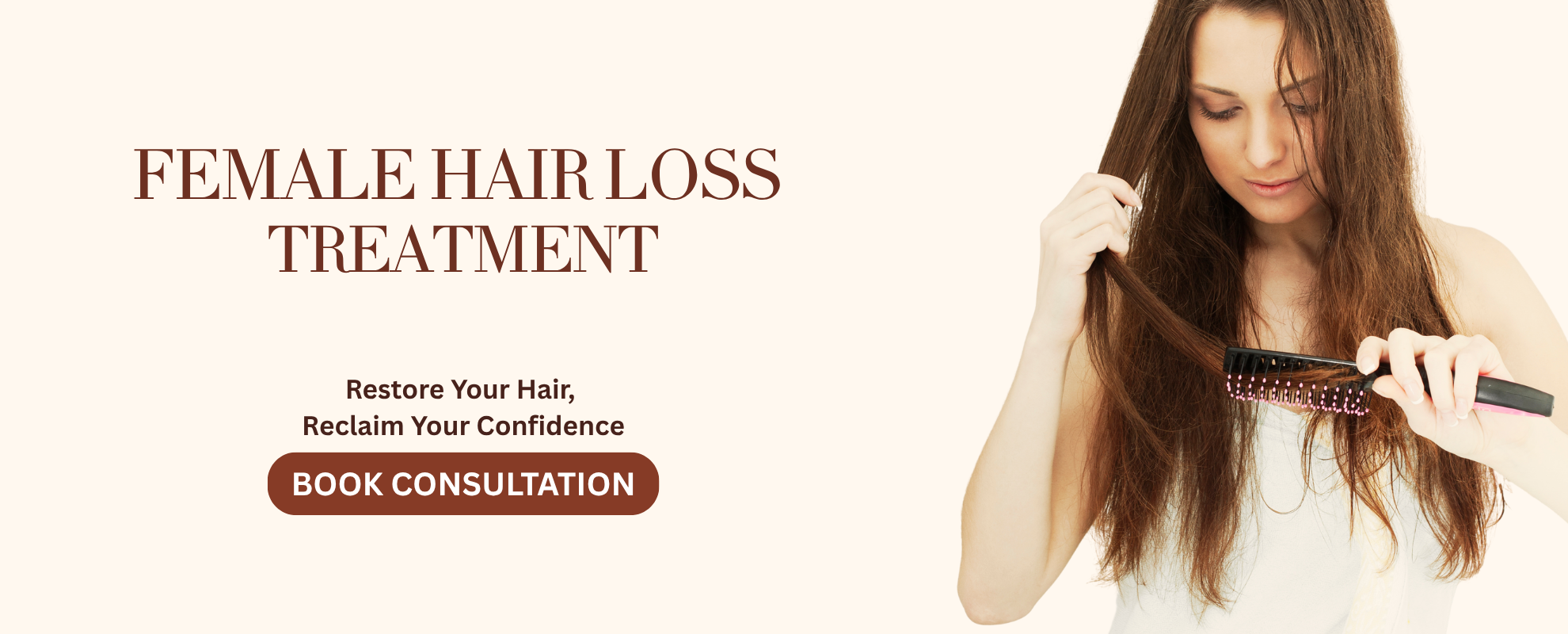
Strong, Healthy & Beautiful Hair with Hair Loss Treatment
Female hair loss is a common concern that affects women across all age groups, often leading to thinning, reduced volume, and a drop in confidence. At Urban Skin and Hair Clinic, our advanced female hair loss treatments are designed to address the root causes—whether hormonal changes, stress, genetics, nutritional deficiencies, or underlying scalp conditions. We focus on reducing hair fall, improving hair density, and restoring natural volume with safe, science-backed solutions. With expert dermatologists and personalised treatment plans tailored to every hair type, we help women achieve stronger, fuller, and healthier hair while boosting confidence and long-term hair wellness.
What is Female Pattern Hair Loss?
Female Pattern Hair Loss (FPHL), also called androgenetic alopecia in women, is a common type of hair thinning that occurs due to a combination of genetic predisposition, hormonal changes, and aging. Unlike male pattern baldness, which often results in complete bald patches, FPHL typically causes gradual thinning over the crown and top of the scalp while maintaining the frontal hairline. Women may notice reduced hair volume, wider parting, and overall decreased hair density. Early diagnosis and treatment are important to slow progression, strengthen hair follicles, and promote regrowth, helping women maintain healthier, fuller hair.
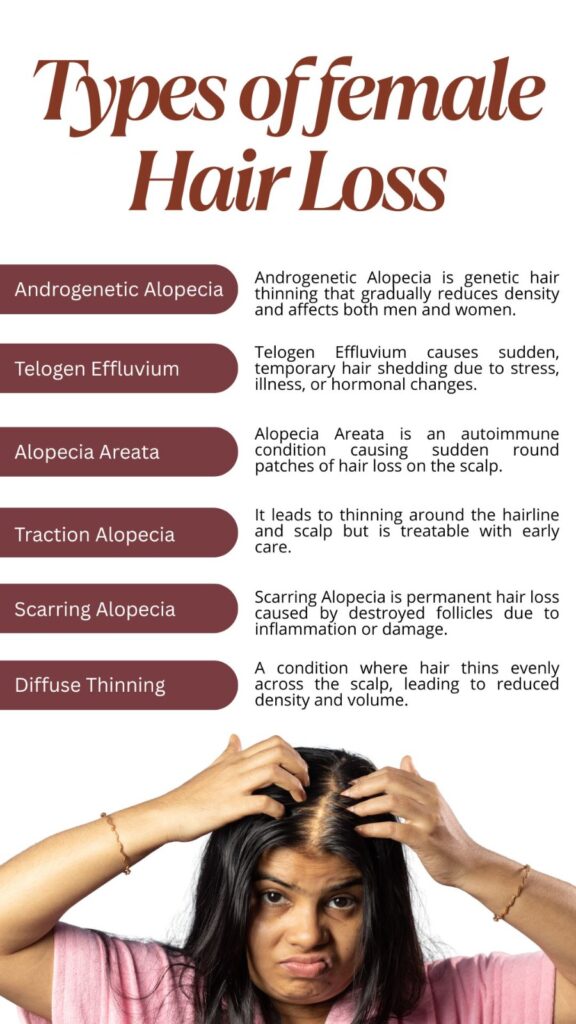
What Are the Types of Female Hair Loss?
Androgenetic Alopecia (Female Pattern Hair Loss)
Gradual thinning on the top and crown of the scalp due to hormonal and genetic factors. The hair parting becomes wider over time.Telogen Effluvium
Sudden, noticeable hair shedding caused by stress, illness, childbirth, nutritional deficiencies, or hormonal changes. Hair becomes visibly thin all over.Alopecia Areata
An autoimmune condition that causes round, patchy bald spots on the scalp or eyebrows.Traction Alopecia
Hair loss caused by tight hairstyles, braids, buns, or extensions that pull on the hair roots.Scarring Alopecia (Cicatricial Alopecia)
A rare condition where inflammation damages hair follicles permanently, leading to smooth, bald patches.Diffuse Thinning
Overall reduction in hair density across the scalp due to hormonal imbalance, thyroid issues, or chronic stress.
What Causes Females hair Loss?
Hair loss in women can occur due to multiple internal and external triggers. Identifying the right cause is crucial for effective treatment:
- Hormonal Changes: Pregnancy, postpartum, PCOS, menopause, or thyroid disorders can disrupt the hair growth cycle.
- Genetics: Family history of hair thinning or pattern hair loss increases risk.
- Nutritional Deficiencies: Iron, Vitamin D, B12, biotin, and protein deficiencies weaken hair roots.
- Stress and Anxiety: Emotional or physical stress triggers sudden hair shedding (telogen effluvium).
- Medical Conditions: Autoimmune disorders like alopecia areata, scalp infections, or chronic illnesses can contribute.
- Hairstyling Habits: Tight hairstyles, frequent heat tools, and chemical treatments damage hair.
- Poor Scalp Health: Dandruff, seborrheic dermatitis, or fungal infections disrupt healthy hair growth.
- Environmental Exposure: Pollution, UV damage, and hard water may accelerate hair thinning.
- Post-COVID Hair Loss: Many women experience temporary hair fall due to stress and immune system changes post-illness.
Popular Treatments for Hair Loss
A highly effective treatment where your own growth-factor-rich plasma is injected into the scalp to strengthen follicles, reduce hair fall, and boost regrowth.
Advanced version of PRP that offers higher growth factor concentration for faster and more noticeable results.
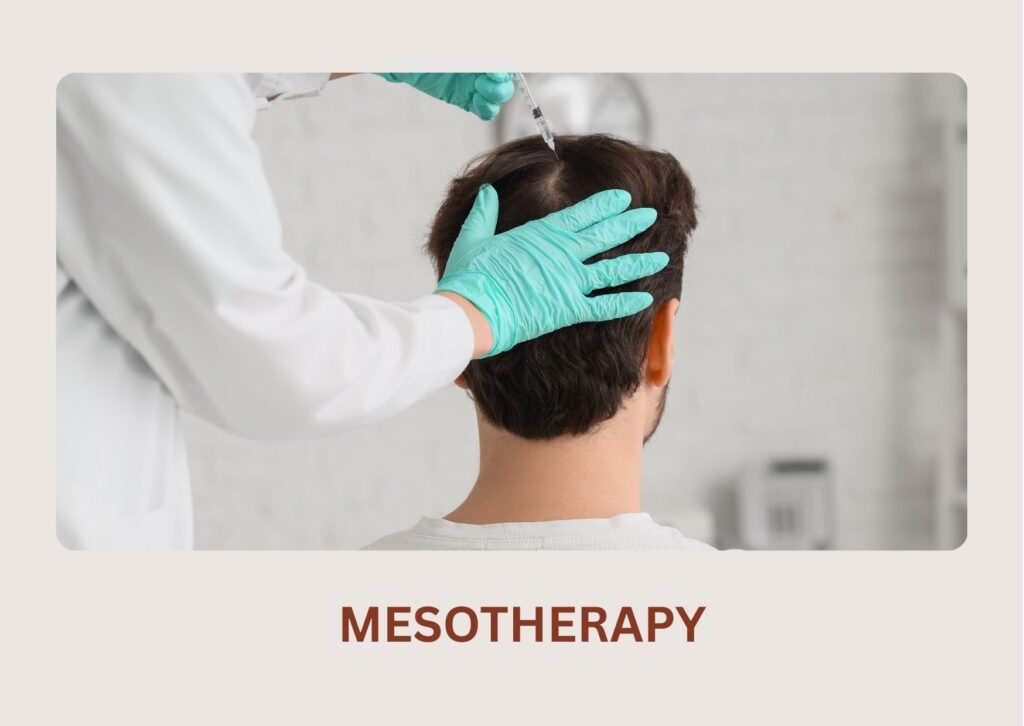
A nutrient-rich cocktail of vitamins, peptides, and growth boosters is delivered into the scalp to improve hair density and reduce thinning.
A permanent solution where healthy follicles from the donor area are transplanted to bald or thinning areas for natural, long-lasting results.
Fine needles create microchannels on the scalp to enhance absorption of growth serums and activate collagen production.
Results Before & After
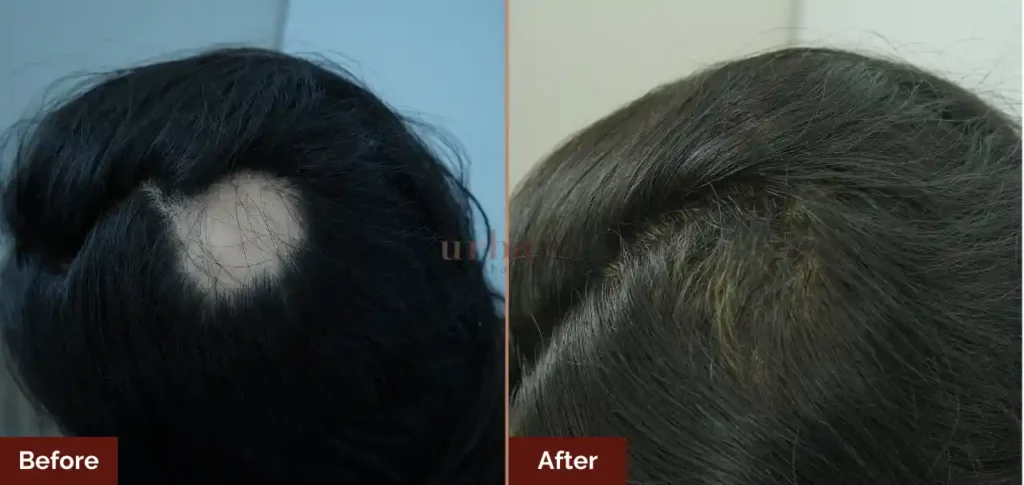
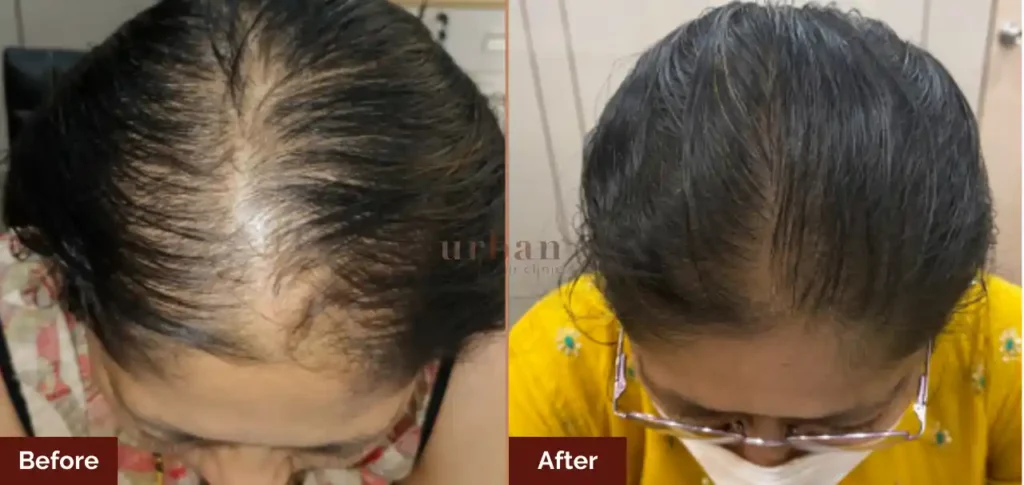
Benefits of Hair loss Treatment
PRP Hair Treatment is a natural, effective way to restore thinning hair, stimulate growth, and improve overall scalp health without surgery. It reactivates weak hair follicles, strengthens existing hair, and increases density for fuller, healthier-looking hair.
- Stimulates natural hair growth using your own platelets
- Strengthens weak and damaged hair follicles
- Reduces hair fall and slows hair thinning
- Improves overall hair density, volume, and thickness
- Provides long-lasting, natural-looking improvements in hair quality
- Safe, non-surgical, and minimally painful procedure
- No downtime; quick 30–45 minute session
- Suitable for both men and women
- Boosts healing and results after a hair transplant
- Provides long-lasting, natural-looking improvements in hair quality
Pre and Post Treatment Care
Pre-Treatment Care
- Avoid blood-thinning medications like aspirin for 3–5 days (only if your doctor approves).
- Do not drink alcohol or smoke for at least 24 hours before the session.
- Stay well-hydrated, drink plenty of water.
- Eat a healthy meal before coming to avoid dizziness.
- Avoid applying hair oils, sprays, or styling products on the day of treatment.
Post-Treatment Care
- Do not wash your hair for 24 hours after the procedure.
- Avoid touching, rubbing, or massaging the treated area.
- Avoid heavy exercise, sweating, and gym workouts for 24–48 hours.
- Avoid alcohol, smoking, and blood-thinning medications for 24 hours.
- Do not apply hair oils, serums, or chemical treatments for at least 2–3 days.
How Treatment Cost Is Decided
The cost of any treatment depends on several key factors that determine the type, intensity, and number of procedures required. Since every patient’s condition, goals, and expectations are different, the final pricing is customised to ensure safe, effective, and personalised care.
- Severity of the Condition
- Type of Treatment Recommended
- Number of Sessions Required
- Technology & Equipment Used
- Doctor’s Expertise & Clinic Standard
- Customisation of the Treatment Plan
- Area/Extent of Treatment
Get An Appointment
How Hair Loss Treatment Works at Urban Skin and Hair Clinic
1. Expert Consultation & Scalp Diagnosis
Our dermatologist performs a detailed scalp examination to identify the exact cause of hair loss, including genetics, hormones, stress, or scalp conditions.
2. Customised Treatment Plan
Based on your hair type and condition, a personalised plan is created using medical therapy, PRP/GFC, mesotherapy, or laser treatments.
3. Strengthening & Reviving Hair Follicles
Advanced growth-boosting therapies nourish weak follicles, reduce excessive hair fall, and stimulate new hair growth.
4. Progress Tracking & Maintenance Care
Regular follow-ups help monitor improvement, adjust treatments if needed, and provide long-term hair care guidance for lasting results.
Why Urban Skin and Hair Clinic

TEAM OF CERTIFIED DERMATOLOGISTS

US-FDA APPROVED EQUIPMENTS

HIGHLY STANDARDISED PROTOCOLS

1 LAKH + HAPPY CLIENTS
FAQ for Female Hair Loss Treatment
Yes. Early diagnosis and the right treatments can control hair fall and stimulate new growth.
Absolutely. PRP is one of the most popular and safe treatments for women, especially in the early to moderate stages.
Some treatments may be delayed until after delivery or weaning. Our doctor will advise safe options accordingly.
Depending on the cause and stage, significant improvement is achievable. Early intervention ensures better results.
Yes, female hair loss treatment is highly effective when started early and customized to your specific needs. At Urban Skin and Hair Clinic, dermatologists first identify the root cause—whether hormonal, nutritional, or stress-related—before creating a personalized plan.
Consult a Specialist Today
Dr. Kiran Chotaliya, M.D. Dermatology, is well-versed in diagnosing and treating complex female hair loss patterns. Known for his empathetic approach and deep clinical knowledge, Dr. Kiran creates customized treatment plans that deliver results — safely and effectively.
